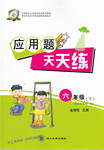题目内容
I could still remember that hot afternoon when my mother ordered me to walk to the public library, and borrow at least one book for the summer. In this way, she hoped to defeat my strange problem — inability to read.
In the library, I found my way into the “Children's Room.” I sat down on the floor and pulled a few books off the shelf. The cover of a book caught my eye. It presented a picture of a beagle. I had recently had a beagle, the first and only animal friend I ever had as a child. He was my secret sharer, but one morning, he was gone, given away to someone who had the space and the money to care for him. I never forgot my beagle.
There on the book's cover was a beagle which looked similar to my dog. I ran my fingers over the picture of the dog on the cover. My eyes ran across the title, Amos, the Beagle with a Plan. Unknowingly, I had read the title. Without opening the book, I borrowed it from the library for the summer.
Under the shade of a bush, I started to read about Amos. I read very, very slowly with difficulty. Though pages were turned slowly, I got the main idea of the story about a dog who, like mine, had been separated from his family and who finally found his way back home. That dog was my dog, and I was the little boy in the book. At the end of the story, my mind continued the final scene of reunion, on and on, until my own lost dog and I were, in my mind, running together.
My mother's call returned me to the real world. I suddenly realized something: I had read a book, and I had loved reading that book. Everyone knew I could not read. But I had read it. Books could be so wonderful. I was going to read them.
I never told my mother about my wonderful experience that summer, but she saw a slow but remarkable improvement in my classroom performance during the next year. And years later, she was proud that her son had read thousands of books, was awarded a PhD in the literature, and published his own books, articles, poetry and fiction. The power of the words has held.
1.The author's mother told him to borrow a book in order to ___________.
A. help cure him of his reading problem
B. encourage him to do more walking
C. let him spend a meaningful summer
D. make him learn more about animals
2. The author managed to read the book through because .
A. he was forced by his mother to read it
B. the book told the story of his pet dog
C. the book reminded him of his own story with his dog
D. the happy ending of the story attracted him
3.What can be inferred from the last paragraph?
A. The author's mother read the same book.
B. The author has become a successful writer.
C. The author has had happy summers ever since.
D. The author's mother rewarded him with books.
4.Which one can be the best title of the passage?
A. The Charm of a Book B. Mum's Strict Order
C. Reunion with My Beagle D. My Passion for Reading
 应用题天天练四川大学出版社系列答案
应用题天天练四川大学出版社系列答案
